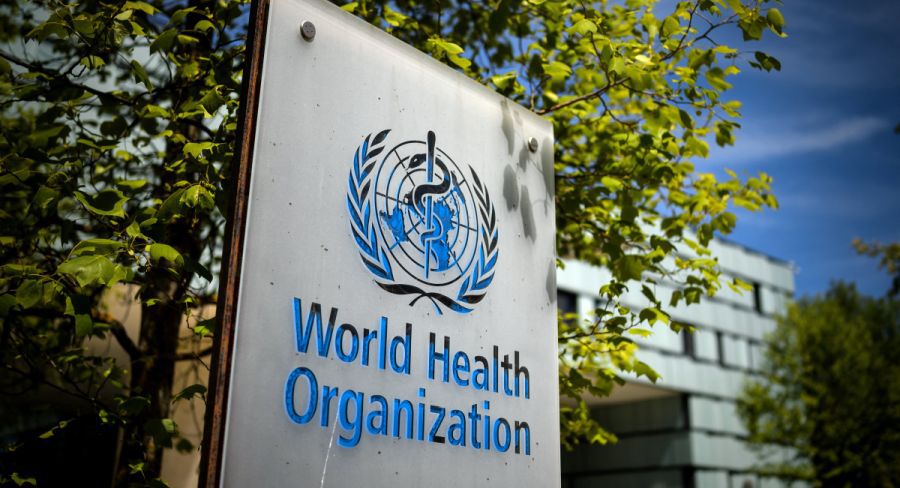
The new omicron variant of the coronavirus presents “a very high risk” for the world, warned the World Health Organization (WHO), in parallel with the increase in the number of countries where it has been detected, a situation that has made the G7 meet of urgency during the day.
“Given the mutations that could give it the ability to escape an immune response and give it an advantage in terms of transmissibility, the probability that omicron will spread globally is high.”, Indicated the organization, although it added that, for the moment, no deaths associated with this mutation have been registered.
Thus, “there could be future spikes of COVID-19, which could have severe consequences“Added the WHO, in a technical document published this Monday, in which it also gives advice to the authorities to try to stop its advance, although there are still many unknowns about its virulence and transmissibility.
Ómicron was first identified last week in South Africa.
This southern African country has already recorded a rapid increase in infections in recent weeks: there were 2,800 new cases on Sunday, compared to 500 the previous week. About three quarters of the infections reported recently are due to this new variant.
“Although omicron is not clinically more dangerous and the first signs are not yet alarming, we will probably see an increase in cases due to the speed of transmission”Said South African epidemiologist Salim Abdool Karim, who predicted that the country will surely reach 10,000 new daily cases of coronavirus by the end of this week.
Many countries have already detected cases linked to this variant, from the United Kingdom to Germany, through Canada, the Netherlands and Israel. And the list continues to grow, with infections in Portugal, Austria and Scotland reported this Monday.
G7 emergency meeting
This Monday the G7 Health Ministers (France, the United States, Canada, Germany, Italy, Japan and the United Kingdom) will meet “to discuss the evolution of the situation on omicron”, At an emergency meeting in London, which holds the temporary presidency of the G7.
“We know that we are in a race against time”Said the president of the European Commission, Ursula von der Leyen, who added that vaccine manufacturers need “Two to three weeks”To assess whether existing vaccines are still effective against the new variant.
From Washington, the White House adviser on the pandemic, Anthony Fauci, affirmed that it continues “believing that existing vaccines should provide a degree of protection against severe cases of COVID-19 ″.
COVID-19 has already claimed the lives of almost 5.2 million people in the world since the disease broke into China in December 2019, according to a balance established by AFP on Monday.
The announcement of the detection of the omicron variant spread panic and very quickly many countries, including the United States, Indonesia, Saudi Arabia and the United Kingdom, imposed restrictions on visitors from southern Africa.
These measures were considered a “punishment”By South African officials.
This Monday, Japan announced that it is closing its borders to the entry of foreign visitors, just three weeks after having relaxed some restrictions. Also Israel, with a confirmed case in the country, banned foreign citizens from entering its territory.
And in Australia, the government suspended its plans to reopen its borders to certain workers and students.
“With the omicron variant detected in various regions of the world, applying travel restrictions for Africa is an attack on global solidarity “said WHO Africa Director Matshidiso Moeti.
Mild symptoms
Days after the South African scientists announced the discovery of this new variant, with more mutations than the previous detected of the coronavirus, the Bambino Gesu hospital in Rome achieved the first “image”From omicron and confirmed that it does indeed have more mutations than delta, but that does not mean it is more dangerous, according to the researchers.
Angelique Coetzee, president of the South African Medical Association, stated that she saw 30 patients in the last ten days who tested positive for COVID-19 and recovered without hospitalization. His main symptom was fatigue.
Several countries had already tightened anti-COVID restrictions, including re-imposed confinements, such as Austria and the Netherlands, where protests took place, some of which led to violent clashes.
In the United Kingdom, new health rules come into force on Tuesday, including the use of masks in shops and public transport, as well as more restrictions on passengers arriving from abroad.
.
Ricardo is a renowned author and journalist, known for his exceptional writing on top-news stories. He currently works as a writer at the 247 News Agency, where he is known for his ability to deliver breaking news and insightful analysis on the most pressing issues of the day.











